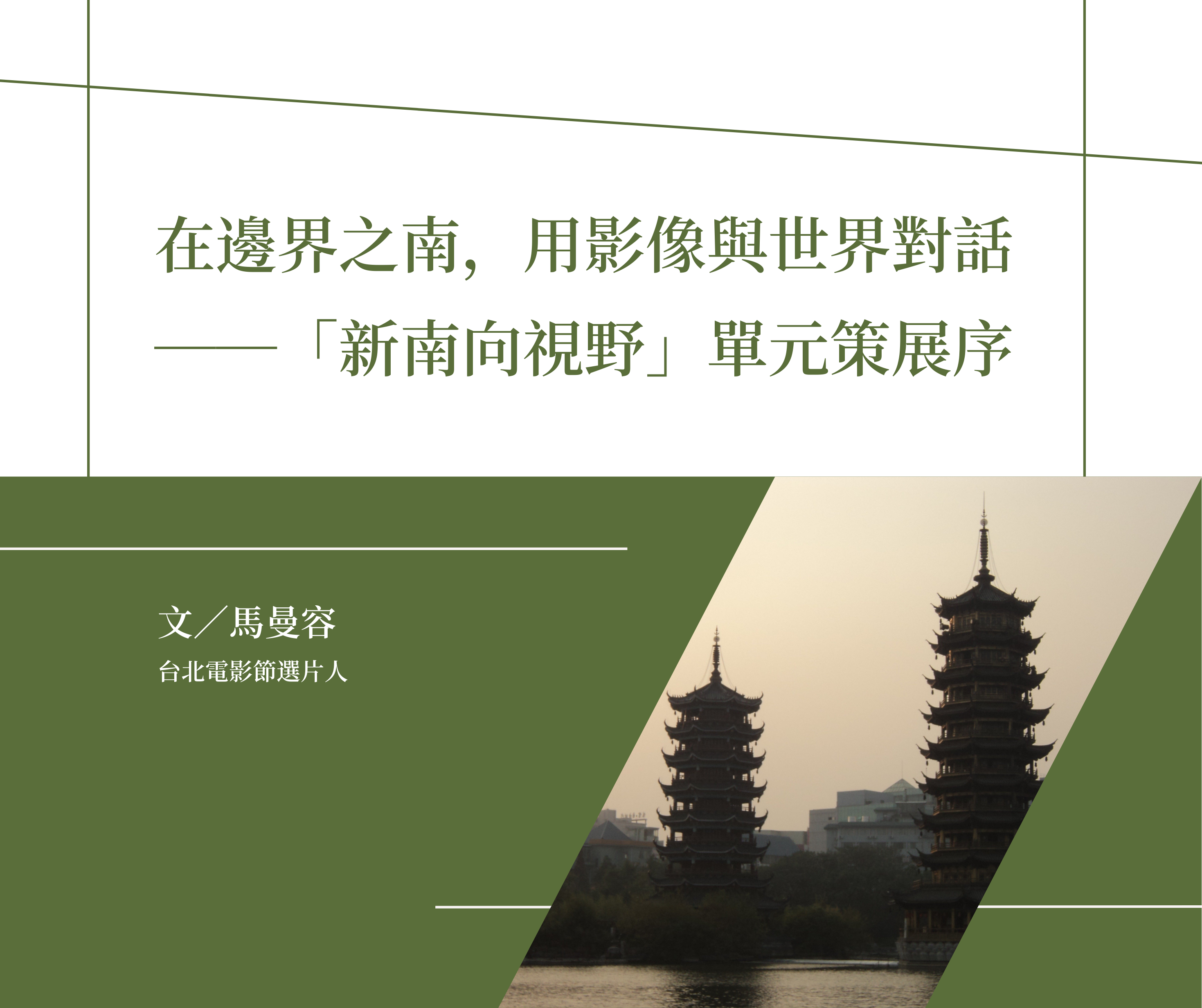Author | Pony Ma(Taipei Film Festival Film Selector)
In recent years, Southeast Asian and Asian filmmaking has thrived on the international stage. Drawing on their unique languages, cultural environments, and the discerning perspectives of their creators, these works tell stories that represent their respective nations. They demonstrate a strong cultural vitality and aesthetic energy while offering sharp perspectives that reflect social realities at the same time, gradually attracting global attention.
The Taipei Film Festival has also recently expanded its attention and exploration of the “Southern” countries. In 2018, we curated the “Southeast Asia Emerging Artists Spotlight”, a new curation in which we showcased the fearless and bold creative attitudes of a new generation of Southeast Asian creators. In 2019 and 2022, Indonesian directors Garin Nugroho and Kamila Andini were respectively selected as the filmmakers in focus. Through their works, we compared how Indonesian films resonate across generations and aesthetics. Additionally, in recent years, the program has actively tracked the latest developments in visual creation from Singapore, Nepal, Cambodia, Thailand, and India. It’s clear that filmmaking is flourishing in Southeast Asia.
In comparison with other Asian countries with highly developed film industries, filmmakers in Southeast Asia and Southern Asia, despite limited resources, have demonstrated strong creative energy and collaborative wisdom. With their passion for imagery and determination to tell their own stories, they’ve forged new paths in the commercial film market by seeking funding from Europe and the US. Using resources they have on hand wisely, the filmmakers have established a transnational creative network with neighboring countries. Although these works differ greatly in language, religion, and cultural background, they share a common narrative of belonging to the “South,” integrating deep context of their respective cultures into universal issues. From political history and societal changes to personal experiences, these filmmakers tell stories through layers of imagery.
In 2025, the Taipei Film Festival continues its in-depth observation of the film ecosystems of the NSP countries. Together with the Taiwan-Asia Exchange Foundation (TAEF), we curate the “New Southbound Policy Vision” section; drawing on Taiwan’s geography and history, we focus on representative independent works and emerging voices from NSP countries. Through these films, we attempt to connect the relationship between islands and rural localities, the periphery and the center, and the self and the other. The New Southbound Policy is not just a policy initiative, but also a shift in perspective. It moves away from the single linear perspective of mainstream narratives in East Asia, Europe and the United States, and instead turns our attention to countries that are undergoing rapid change, particularly those under pressure from colonial legacies and identity reconstruction.
This year’s “New Southbound Policy Vision” section features five works from Indonesia, Bhutan, Malaysia, the Philippines, and India. Using distinctive languages and narrative styles, these films depict both social contradictions and desires, as well as historical shadows and modern conflicts. They offer a deeper look into identity, memory, class, and desire. They also reveal how these countries, in their postcolonial contexts, use filmmaking as a medium to respond to reality, writing contemporary stories from scars and creating voices that resonate globally.
As this year’s opening film, the Filipino film “Sunshine” focuses on the matter of unmarried teenage pregnancies. In the Philippines, where abortion is still illegal, the director’s writing weaves fantasy and realism to depict a young woman’s journey marked with challenges from the female body, autonomy, and dreams. The film “Crocodile Tears,” created by Indonesian director Tomppolan over the course of six years, is set in a humid and gloomy crocodile farm. Through the depiction of the animal’s habits, it alludes to the suffocating and dependent emotional relationship between mother and child, creating a dark work that blends suspense, folklore, and a coming-of-age fable.
Bhutan’s film “I, the Song” is inspired by the real-life experiences of the director’s friend. Through the interweaving of songs and images, it explores the hidden pain of female identity being misrecognized and eliminated. This poetic narrative reflects the pursuit of memory and self-identity. The Malaysian dark comedy road movie “Macai” takes the audience on a desperate journey. Three characters with very different backgrounds travel through a fictional country, making a living through extreme measures. This movie also reflects the current situation of Malaysian society with its intertwined ethnic groups. ”Cactus Pears,” which won the Grand Jury Prize in the Global Drama category at the Sundance Film Festival, depicts a gay romance that quietly emerges during a trip back home to attend a funeral. In the calm and realistic visual and ambient soundscape, the film delicately depicts the secrecy and struggle of gay identity in traditional villages, as well as its quiet collision with India’s deep-rooted gender and ethical boundaries.
Through the five films in the “New Southbound Policy Vision” section, we see how contemporary Southeast Asian and South Asian creators use filmmaking as a cultural mirror and emotional outlet: they respond to the complexities of identity, faith, and reality, and engage with the world through their empathetic narratives. By selecting these films, the Taipei Film Festival hopes the audiences will understand the complexities of different cultures through a viewing experience that transcends language and region, in turn reconsidering Taiwan’s connection and position within Asia and the world.
